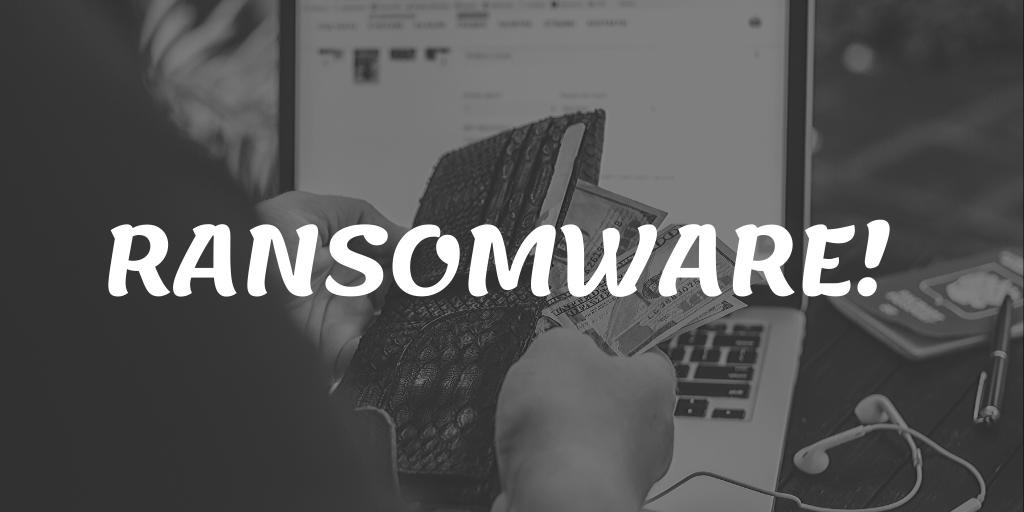We’ve written about ransomware before but we get asked more questions about this than almost any other security question so we thought it would be a good idea to reiterate some of our previous advice.
Ransomware is a form of cyber-criminal activity that is increasingly being used by hackers to extort money from individuals and companies.
The total number of ransomware attacks against businesses has grown dramatically over recent years, with organisations set to fall victim to a ransomware attack every 11 seconds by 2021 (Cyber Security Ventures).
Ransomware explained
The idea behind ransomware, a form of malicious software, is relatively simple: lock and encrypt a victim’s computer or device data, then demand a ransom to restore access to it.
How ransomware works
There are several different ways in which ransomware can infect your computer. One of the most common methods utilised today is through malicious spam, or malspam, which is unsolicited email that is used to deliver malware. Often, the email might include booby-trapped attachments, such as PDFs, Word documents or external links. It may also contain links to malicious websites that infect your device.
So how can you prevent such a fatal cyber-criminal attack?
Prevention is the best form of defense….
Ransomware is a profitable market for cyber-criminals to target and is often difficult to stop. Prevention is the most important aspect to deter cyber-criminals and to protect your personal data from such attacks. To help protect yourself from a ransomware attack we have outlined some steps below you can take to keep your data safe and secure:
- Use security software – To help protect the security of your data use a reputable antivirus software (which detects malicious applications, including ransomware) and ensure a firewall is in place.
- Maintaining a strong firewall will help prevent access from unauthorised users. Hardware firewalls (for businesses) are best but even a software firewall will offer protection.
- Regularly update your security software – criminals are constantly adapting and changing their attack strategies to make use of software vulnerabilities and it is critical that your security software is the latest version also.
- Ensure your files are backed-up frequently – Make sure all data is regularly backed-up to a secure site. This won’t stop a malware attack but it can make the damage caused by one less significant as your critical data can be restored after removal of threats.
- Don’t automatically open email attachments! Email is one of the most popular methods for delivering ransomware. Avoid opening emails and attachments from sources that look unfamiliar or untrusted. Phishing spam in particular can fool you into clicking on a legitimate-looking link that actually contains malicious code.
- Educate staff on the likely causes of a ransomware attack – train staff so they know they should not open emails with attachments from unknown sources (this is the most common source of ransomware attack where scammers may include malicious links or attachments in emails that look harmless).
- Don’t pay ransoms! – It’s important to consider that even if you pay the ransom you may not get your data and files back. A cyber-criminal may try and extort more money out of you without releasing your data back to you.
We hope this short guide has given you an overview of ransomware, how you can deter cyber-criminal activity and help protect your personal data.
If you would like any further information on how to prevent a ransomware attack or have any concerns over the security of your data, please don’t hesitate to contact us – 0161 464 6101.


